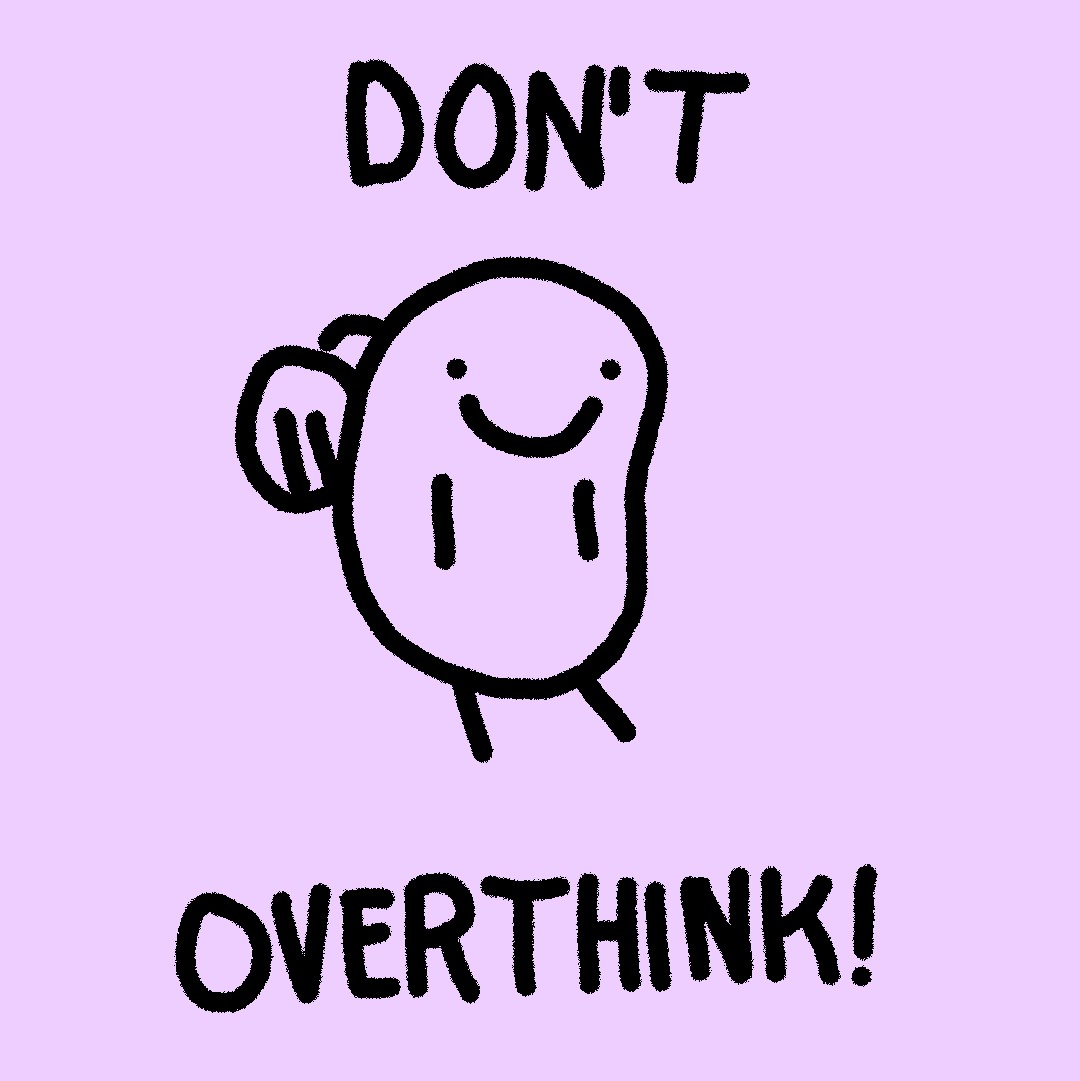

Are you a chronic overthinker? Sometimes it’s hard not to let our worrying thoughts take over. Constant overthinking can harm a person’s mental health and well-being and worsen their quality of life. If you struggle with overthinking, give our quiz a chance. Are you a fusspot, a worrier, a bundle of nerves? Discover the answer and find out how to stop overthinking.
When does thinking turn into overthinking? You go over minor issues in your head to keep them from becoming major ones. You think about positive things until they bore you and lose their significance. You even obsessively scrutinize events rather than enjoy them. Because of that, you miss out on joyful moments. Does it sound familiar?
Get a 100% honest answer. Do you have social anxiety?
Overthinking is associated with anxiety and depression. Rumination is also prevalent in people who have chronic pain or ailment, and it takes the form of negative thoughts about the pain and how to heal from it.
People with anxiety disorder are particularly prone to overthinking. They tend to worry and struggle not to come up with the worst scenarios. Sometimes the cycle of negative thoughts might trick their brain into believing overthinking is productive and advantageous. Chronic worriers believe that worrying demonstrates their concern for something or prepares them for the direst situations. It is how overthinking becomes a bad habit.
Many individuals suffer from anxiety. Do you think you are one of them?
Regrets about the past might be another factor that triggers overthinking. You focus on the things that were and the past version of yourself instead of on the present. Ruminating over past events and decisions is a heavy burden that doesn’t allow you to reach your full potential.
In some people, overthinking might be the result of traumatic childhood experiences. They learned it as a coping mechanism early in their lives to deal with overwhelming situations, and they often use it as adults.
Love can get toxic! Do you have obsessive love disorder?
Personal worries can be a catalyst for overthinking. Most people have a healthy amount of concern for their health, family, relationships, career, and other aspects of life. For some individuals, their worries become too much to handle. They might spend sleepless nights thinking about potentially losing their job, unexpectedly getting sick, or being dumped by their partner.
Another potential trigger is a need to control things. A person can only feel confident and reassured when they are in charge at all times. They end up overthinking various situations when not able to control them fully.
We can tell you if you show signs of avoidant personality disorder.
An idle mind is prone to overthinking. You start going over the same topics over and over when you have no other distractions, for example, at night. Excessive rumination like that is the result of your mind attempting to solve problems but becoming stuck.
We’ve mentioned before that overthinking often relates to anxiety. When you’re anxious about something, you’re more likely to replay it in your thoughts.
You might think that overthinking is a fitting way to prepare you for various situations. However, at a certain point, it turns obsessive and stops being beneficial.
How do you behave in a relationship? Discover your attachment style.
Overthinking is not recognized as a mental health condition. Those with generalized anxiety disorder tend to be chronic worriers and overthinkers. They might experience excessive worry about many things for a period of a minimum of six months and difficulty handling anxious thoughts.
Overthinking is a tricky habit to break. It is because it feels like we’re doing something productive, even when we’re not. Additionally, when we get accustomed to using overthinking as a way to deal with our problems, learning new coping mechanisms is a challenge.
Calming your racing thoughts and getting control back over your mind might be hard but not impossible.
One way to handle overthinking is to take a step back and become conscious of your reactions. What emotional responses do your anxious thoughts evoke? Are you sad, angry, or hopeless? An honest look at the emotions in your core can be painful, but it’s crucial to improvement.
How are you feeling today? Evaluate your mental health now.
You can try and find a distraction to keep your mind occupied. Do not turn to mindless scrolling through your phone. Instead, partake in a new hobby or try volunteering. If the perspective of a distraction from your thoughts feels intimidating, start with a small chunk of time every day to explore new activities or develop existing ones.
Sometimes, changing perspective and focusing on other people’s needs might be just the thing to help with your overthinking. Consider those in your community who might require some aid. Recognizing that you can improve someone’s day can help keep negative thoughts at bay and provide you with something constructive to focus on.
If your thoughts are overwhelming, ask for help. Professional support from a therapist can give you tools to sort out your thoughts and alter your mindset.
Are you an overthinker? Learn the answer with our quiz and find out how to stop overthinking!